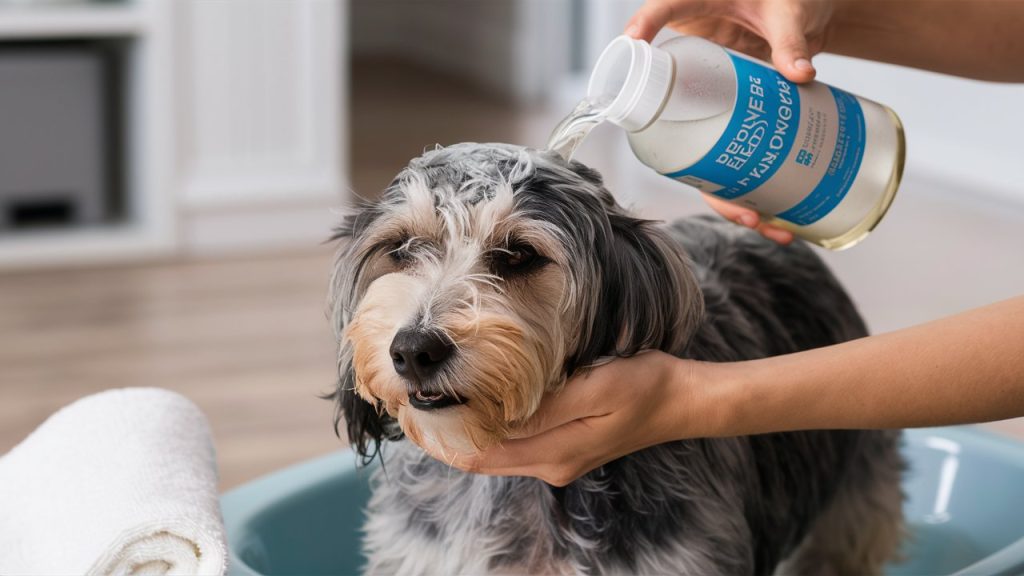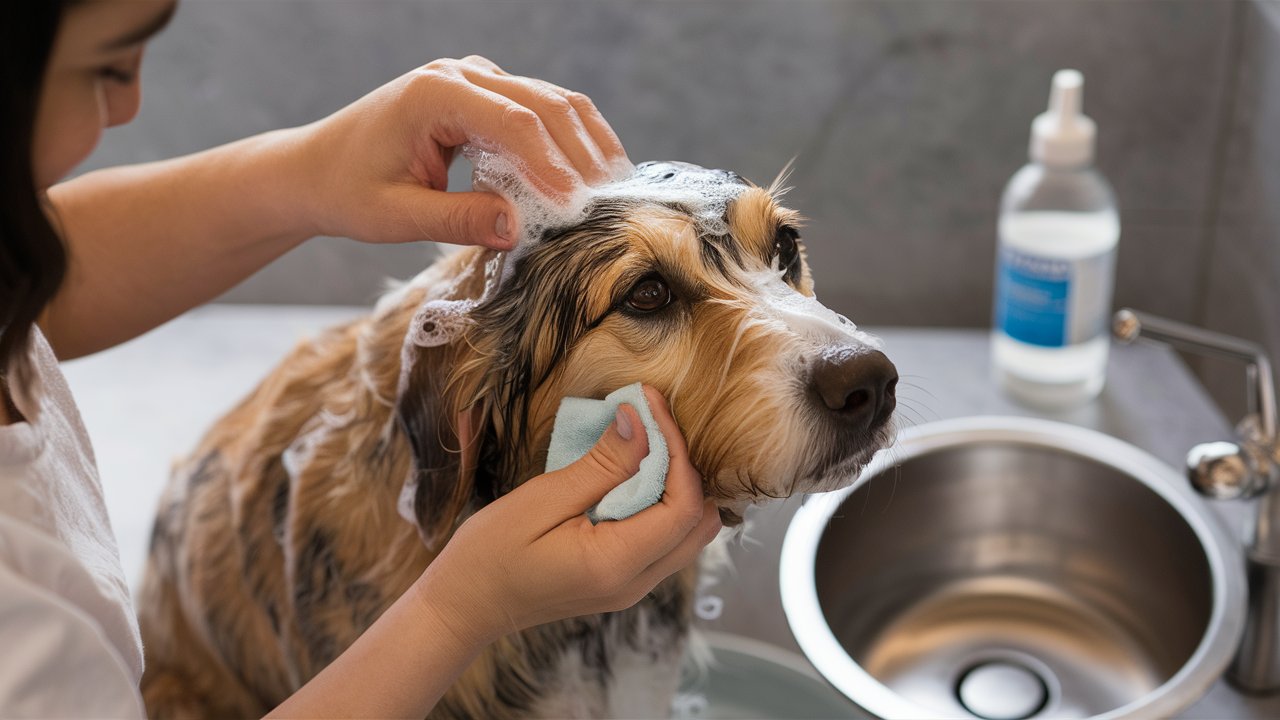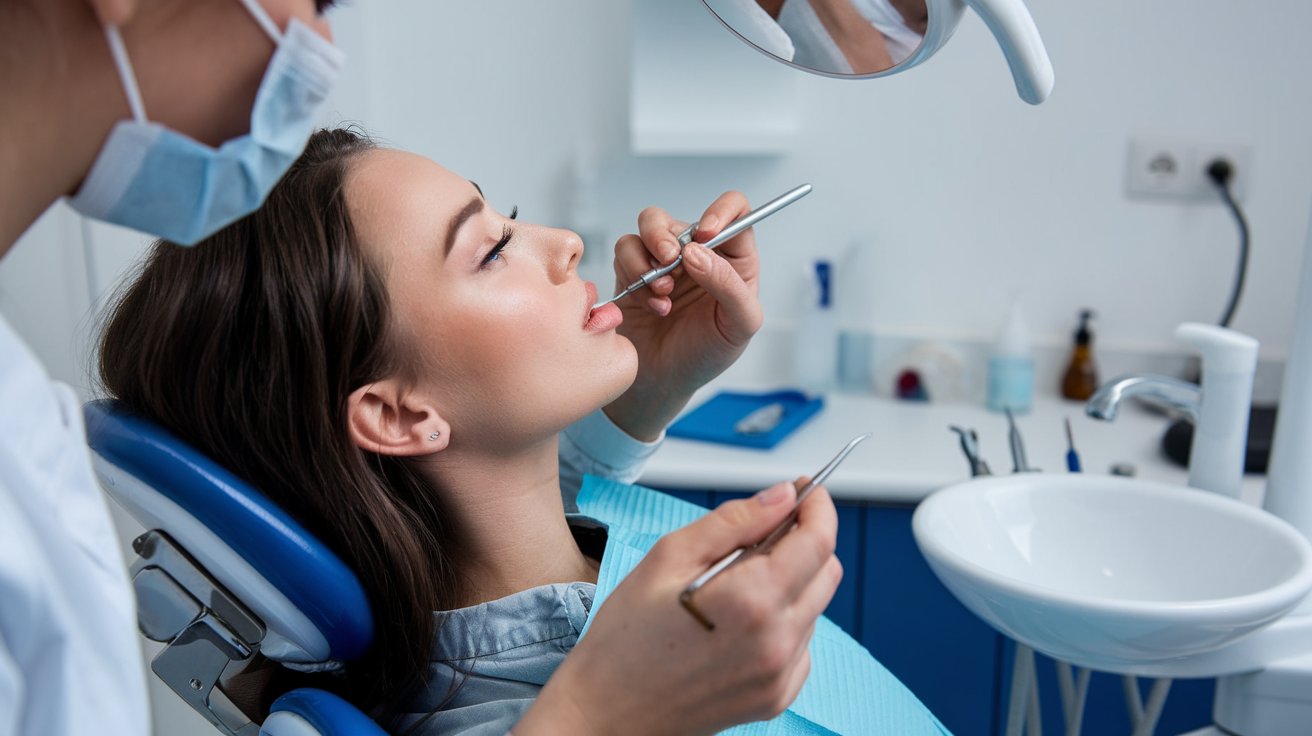Table of Contents
As a dog owner, you might have asked, “Can you use peroxide on dogs?” Whether for cleaning wounds, inducing vomiting, or maintaining oral hygiene, many pet owners are curious about the safety and effectiveness of using hydrogen peroxide on their beloved furry friends. This article aims to uncover the truth behind “can you use peroxide on dogs”, providing you with the essential knowledge to keep your pet safe and healthy.
What Is Hydrogen Peroxide?

Hydrogen peroxide is a common household chemical known for its disinfectant properties. It is typically used for cleaning wound surfaces and even in some whitening products. But just because it’s a staple in many first-aid kits doesn’t necessarily mean it’s safe for every use, especially for your dog. Understanding what hydrogen peroxide is and how it works is the first step in determining whether it’s a safe option for your pet.
Can You Use Peroxide on Dogs’ Wounds?
The Benefits of Using Peroxide on Dog Wounds
When your dog gets a cut or scrape, your first instinct might be to clean the wound to prevent infection. Hydrogen peroxide is often considered because it kills bacteria and other pathogens. The fizzing action of peroxide is due to its reaction with enzymes in the blood, which can help to remove dead tissue and clean the wound.
The Risks of Using Peroxide on Dog Wounds
However, while peroxide can clean wounds, it can also cause damage to healthy cells. The same fizzing action that kills bacteria can also destroy the skin cells, which is crucial for healing. Overusing hydrogen peroxide can lead to delayed wound healing and increased scarring, making it not the best choice for wound care in dogs. Instead, using a saline solution or an antiseptic designed for pets may be safer and more effective.
Also read: What Is PCT in Healthcare: Discover Its Powerful Impact
Can You Use Peroxide on Dogs to Induce Vomiting?
When to Consider Inducing Vomiting
There are situations where a dog may ingest something toxic, and inducing vomiting is necessary. Hydrogen peroxide is sometimes recommended to make a dog vomit in emergencies, mainly if a vet is not immediately available.
How to Safely Use Peroxide for Inducing Vomiting
If your vet advises you to use peroxide to induce vomiting, it is crucial to do so correctly. The general recommendation is to use a 3% hydrogen peroxide solution and administer one teaspoon per 10 pounds of body weight. This should be given orally, and you should monitor your dog closely. However, this method is not without risks. It is best to induce vomiting under a veterinarian’s supervision only, as doing it incorrectly can have unfavorable effects.
Situations Where You Should Not Use Peroxide
It’s important to note that peroxide should not be used if your dog has ingested certain substances, such as caustic chemicals or sharp objects, as this could cause more harm during vomiting. It’s critical to get veterinarian assistance right away in such situations. Relying on peroxide in these situations can be dangerous, and professional care is essential.
Can You Use Peroxide on Dogs l Care?
Peroxide as a Teeth Whitening Solution
Some dog owners might wonder if hydrogen peroxide can be used as a whitening agent to clean their dog’s dog. While it may seem like an easy at-home solution, using peroxide on a dog’s dog is generally not recommended.
The Risks of Peroxide in Oral Care
If ingested, hydrogen peroxide can irritate the mouth, gums, and digestive tract. Dogs are likely to swallow whatever you put in their mouths, and peroxide can lead to stomach upset, including vomiting and diarrhoea. There are safer alternatives for maintaining your dog’s oral dog’s nose, such as dog-specific toothpaste and regular brushing.
Safe Alternatives to Peroxide for Dog Care
Wound Care Alternatives
Instead of using peroxide on wounds, consider using a saline solution or a pet-safe antiseptic. These options are less likely to harm healthy tissue and can effectively clean wounds without the risk of delayed healing.
Safe Methods for Inducing Vomiting
If you find yourself in a situation where inducing vomiting is necessary, always consult your veterinarian first. Depending on the situation, other methods or treatments may be safer and more effective. Keeping activated charcoal or having an emergency vet contact can also be part of a secure plan.
Dog-Specific Oral Care Products
For your dog’s oral health products specifically designed for dogs. Regular brushing with dog toothpaste, dental chews, and professional cleanings by your vet are the safest ways to ensure your dog’s teeth and dog stay healthy.
Signs You Should Visit the Vet to know Why Can You use Peroxide on Dogs

Sometimes, home care isn’t enough, and professional veterinary help is necessary. If your dog is injured, has ingested something toxic, or shows signs of distress, seeking immediate veterinary attention is vital. Knowing when to go to the vet can make all the difference in your dog’s health and dog’s.
Wound-Related Issues
If your dog’s wound is deep healing or showing signs of infection such as redness, swelling, or pus, it’s time to see this. Delayed healing or worsening symptoms can indicate that more advanced care is needed.
Ingestion of Harmful Substances
If you suspect your dog has ingested something toxic, do not wait to see if symptoms develop. Make quick contact with an emergency poison control hotline or your veterinarian. Time is critical in such cases, and professional advice can guide you on the safest course of action.
Persistent Oral Health Issues
If your dog has bad breath, discoloured teeth, or swollen gums, it’s a sign that more than just home care might be needed. A veterinary examination can help determine the cause and the best treatment plan to keep your dog’s mouth healthy.
So, can you use peroxide on dogs? The answer is nuanced. While hydrogen peroxide has its uses, such as in emergencies, to induce vomiting, it is not without risks. Safer alternatives are recommended for wound care and oral hygiene. Always consult your veterinarian before using peroxide or any other treatment on your dog. Your vet can provide the best advice tailored to your dog’s needs, ensuring their health and safety.




